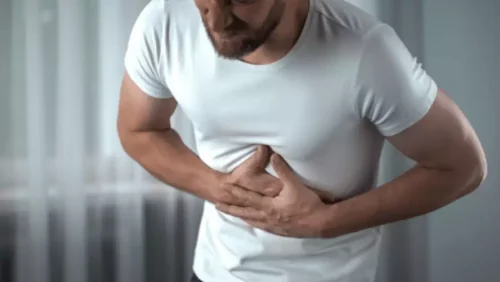
“This complex interplay leads to elevated blood pressure and subsequent hypertension,” Ramnauth said. However, “since everyone has different physiology, many people may react to the same amount of alcohol in diverse ways,” he added. Alcohol consumption is categorized into different levels based on the amount consumed. Here is how drinking levels are defined according to the National Institute on Alcohol Abuse and Alcoholism. “Some of the new diabetes medications have a diuretic effect, and that could cause dehydration” in people with diabetes, Vaishnava says. Research shows that regular use of acetaminophen can raise blood pressure, as can nonsteroidal anti-inflammatory drugs (NSAIDs), including ibuprofen and naproxen.
Hartmann 2017 published data only
Her expertise lies in interventional cardiology and peripheral artery disease, with a special emphasis on women’s heart health. Along with her surgical skills, she prioritizes collaborating with patients to prevent serious cardiac or vascular incidents. Her method involves creating carefully tailored care plans aimed at optimizing patient health outcomes. If you experience any of these symptoms, it is essential to seek medical attention immediately. Drinking too much alcohol can cause a sudden drop in blood pressure, leading to dizziness, fainting, and even shock. Monitoring your alcohol intake and being aware of these signs can help you manage your blood pressure more effectively.
Argani 2016 published data only

Every small change can lead to significant long-term benefits for your cardiovascular system and overall well-being. The relationship between blood pressure alcohol intake and blood pressure levels depends on how much alcohol you consume. Your doctor will often advise you when it’s safe to start drinking alcohol again, from a medical perspective. Psychologically, however, many people feel low in mood after they’re discharged home, especially following open heart surgery. There is certainly no reason to start drinking alcohol if you don’t already.
- So, it was not appropriate to conduct a separate meta‐analysis based on that population.
- For medium doses and high doses of alcohol, participants represented a range in terms of age, sex, and health condition.
- At the same time, some studies suggest that stopping or reducing alcohol intake produces better outcomes for those with high blood pressure or CVD.
- However, regular drinking of moderate to high amounts of alcohol can permanently affect your heart rate and impair your baroreceptor sensitivity, which can result in permanent high blood pressure.
- We also found moderate‐certainty evidence showing that alcohol raises HR within the first six hours of consumption, regardless of the dose of alcohol.
Assessment of reporting biases

The aim of Fazio 2004 was to determine effects of alcohol on blood flow volume and velocity. Study authors mentioned that acute ethanol administration caused transitory increase in BP at 20 minutes. Rossinen 1997 measured blood pressure but selectively reported only SBP instead of reporting both SBP and DBP. Karatzi 2013Maufrais 2017 and Van De Borne 1997 measured blood pressure before and after treatment but did not report these measurements. We classified seven studies as having high risk of bias (Agewall 2000; Bau 2011; Dumont 2010; Fazio 2004; Karatzi 2013; Maufrais 2017; Van De Borne 1997). Agewall 2000 measured blood pressure upon arrival of participants and did not measure blood pressure after the intervention.
- Dumont 2010, Karatzi 2013, Kawano 1992, and Williams 2004 reported reasons for participant withdrawal and excluded their data from the final analysis.
- Low‐dose alcohol increased heart rate (HR) within six hours, suggesting that even one glass of wine increases HR.
- Along with her surgical skills, she prioritizes collaborating with patients to prevent serious cardiac or vascular incidents.
- Different genetic variants of ADH and ALDH enzymes have been found to show strikingly different rates of alcohol metabolism among different races (Chen 1999; Peng 2014; Agarwal 1981).
- It is recommended that there should be at least 10 studies reporting each of the subgroups in question (Deeks 2011).
- Some data relied on self-reporting; further data could include more diverse samples.
Apostolidou 2015 published data only
Consuming alcohol can increase the risk of high blood pressure and other metabolic conditions in several ways. For example, alcohol can affect calcium levels, cortisol levels, and baroreceptor sensitivity, all of which can lead to increases in blood pressure. Completely refraining from consuming alcohol lowers the risk of some of the health risks listed above. Although some of those effects can occur without does alcohol lower bp alcohol consumption, avoiding alcohol helps decrease the risks.
When noradrenaline stimulates the adrenergic receptors located in the heart muscles, heart rate and blood pressure are increased. “It appears that heavy alcohol use can affect https://ecosoberhouse.com/ blood pressure for 12 to 24 hours; then persistent heavy alcohol use can also lead to sustained elevations in BP,” says Dr. Desai. Within 13 hours of binge drinking, your systolic BP goes up by nearly four points and your diastolic BP goes up by 2.5 points, according to the Cochrane Database of Systemic Reviews. We are also moderately certain that high‐dose alcohol decreased blood pressure within six hours, and the effect lasted up to 12 hours.
Tracking your alcohol intake will help you to understand if your drinking has changed and if you should expect any changes in your blood pressure. Many people underestimate their alcohol use, making it important to measure and keep track of your daily alcohol intake accurately. High blood pressure and alcohol use are linked — studies show that unhealthy lifestyle habits, including excessive drinking, are risk factors for developing hypertension. We also did not rate the certainty of evidence based on the funding sources of studies or on lack of a registered protocol because we did not think this would affect the effect estimates for these outcomes. However, we noted the lack of description of randomisation and allocation concealment methods in most of the included studies as a reason for downgrading because of the possibility of selection bias.
- To understand how much alcohol is too much, it may be helpful to know what excessive drinking means.
- If you want to cut down, a great way is to have several drink-free days a week.
- Baroreceptors or stretch receptors are mechanoreceptors located on the arch of the aorta and the carotid sinus.
- A study from 2023 found that tea consumption could help reduce a person’s risk of hypertension by 10%.
- Alcohol disrupts the normal function of blood vessels, making them less elastic and impairing blood flow, which can increase blood pressure alcohol.
Williams 2004 published and unpublished data

Just like you need to track your alcohol intake, you also need to track your blood pressure. The only way to know how your blood pressure is doing is to measure it daily. This helps you understand how alcohol affects your blood pressure and if any interventions are helping. We identified Stott 1987 and Barden 2013 from Analysis 3.1 and Analysis 3.2 as having a considerably lower standard error (SE) of the mean difference (MD) compared to the other included studies. Assuming that the low SEs of MDs reported in Stott 1987 and Barden 2013 are errors and are not reliable, we replaced these measures with the average SE of MD from the rest of the included studies. We contacted the study authors for missing or unclear information relevant to the review using contact information provided in their respective articles.
Chiva‐Blanch 2013a published data only

Sometimes, alcohol use can send blood pressure medication into overdrive, leading to dangerous blood pressure drops or adverse side effects. If someone isn’t sure whether they should combine alcohol with their blood pressure medication, they should speak to their doctor or pharmacist to obtain additional information. We created three SoF tables to show the certainty of evidence and the summary of effects on outcomes of interest (SBP, DBP, and HR) for high (Table Halfway house 1), medium (Table 2), and low doses (Table 3) of alcohol. It is recommended that there should be at least 10 studies reporting each of the subgroups in question.
- High alcohol consumption also increased heart rate from 7 to 12 hours and after 13 hours.
- Each study had to meet strict eligibility criteria, allowing researchers to focus on participants with no previous history of cardiovascular disease.
- After ≥ 13 hours of consumption, SBP and DBP were raised; the certainty of evidence was low and medium, respectively.
- More RCTs are needed to study the effects of low‐dose alcohol to better delineate the dose‐response effects of alcohol on BP and heart rate.
- Accordingly, we considered up to 14 g of alcohol as a low dose of alcohol.
- Chen 1986 reported that two participants in the alcohol group dropped out of the study for unknown reasons, so data analyses were based on eight participants in the alcohol group and on 10 participants in the control group.
Heart rate increased significantly after alcohol consumption and remained increased at all times measured. Dr. Mathis also identifies the specific types of alcoholic beverages that are particularly problematic for individuals with high blood pressure. Drinks with added sugars, such as those mixed with soda, dessert cocktails, margaritas, and high-alcohol content drinks like Manhattans or dirty martinis, can exacerbate the blood pressure-raising effects of alcohol. However, he notes that the amount of alcohol consumed is more influential than the type of drink. High blood pressure, also known as hypertension, is a stealthy yet significant health challenge faced by almost half the adult population in the United States. According to the Centers for Disease Control and Prevention, nearly 120 million American adults are battling this “silent killer”, but alarmingly, only a quarter are managing it effectively.
